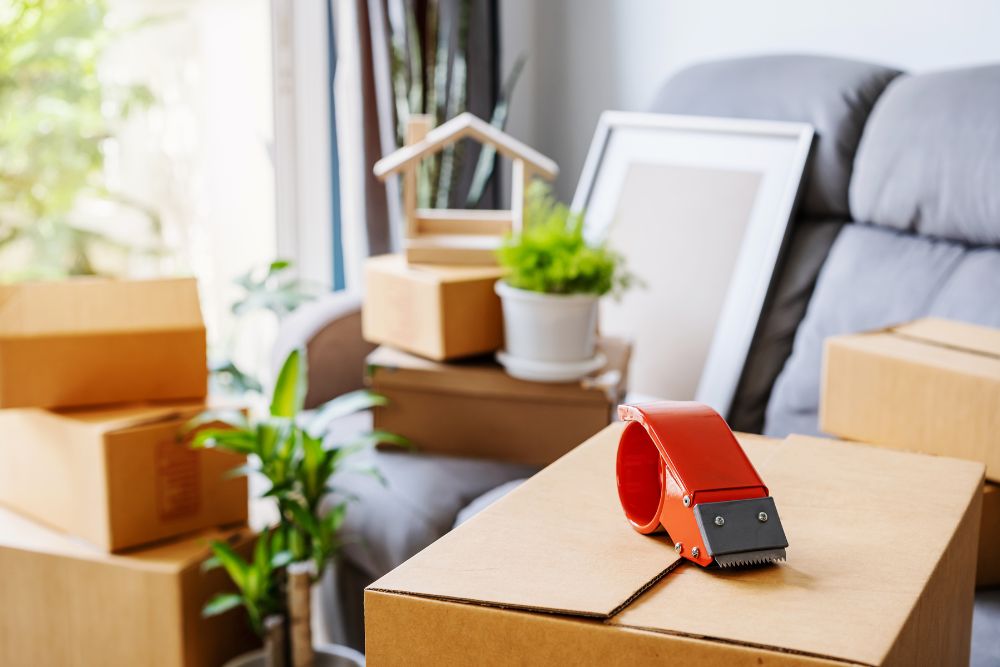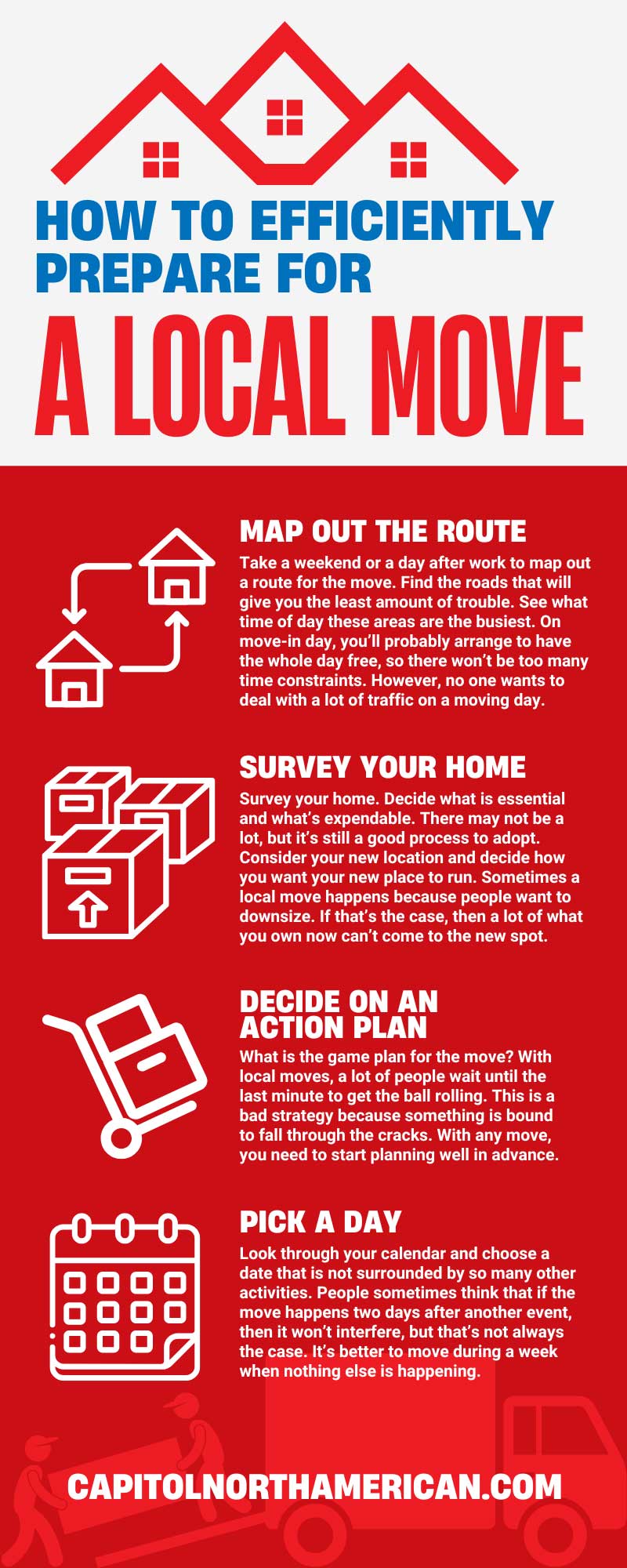
Even seasoned movers make mistakes. In fact, they do it so much that they start to feel that their way is best. But there are probably strategies they picked up on that actually make the process harder for them than it needs to be. Some even make the mistake of thinking that because they are moving locally, they don’t need to plan properly. We’re here to tell you how to efficiently prepare for a local move.
Map Out the Route
Where are you moving to? Since it’s local, you’re probably already familiar with the neighborhood and the area. However, remember that it is still new territory. It’s not the home you’re used to, so there will be some changes. It’s important to get a feel for these alternations before move-in day.
Take a weekend or a day after work to map out a route for the move. Find the roads that will give you the least amount of trouble. See what time of day these areas are the busiest. On move-in day, you’ll probably arrange to have the whole day free, so there won’t be too many time constraints. However, no one wants to deal with a lot of traffic on a moving day.
Avoid the times when the streets are busiest or find alternative routes to take. Check out the new neighborhood and try to track down a location where you can start unloading. Some apartment complexes have strict rules about the moving process and prevent new owners from loading and unloading in certain areas.
Make sure you don’t violate any of these rules. Start this process a few weeks leading up to the move-in date.
Survey Your Home
Before any packing starts, decide what needs to go. People often make the mistake of treating a long-distance move and a local move differently. While there is a clear distinction between the two, there are still some tips and suggestions people can adopt from both.
For instance, with a long-distance move, people normally don’t want to bring everything with them to their new home. With a local move, they don’t have this same thought—but they should. Moving, period, means a new beginning. Therefore, there are some things that should not come with you.
Survey your home. Decide what is essential and what’s expendable. There may not be a lot, but it’s still a good process to adopt. Consider your new location and decide how you want your new place to run. Sometimes a local move happens because people want to downsize. If that’s the case, then a lot of what you own now can’t come to the new spot.
Go from room to room and start categorizing items into separate piles. One pile can be for staying and another for going. It’s up to you how you choose to rid yourself of the other items. Some can be donated, and others can be sold. Either way, it’s a good idea to start things off with a clean slate.
Decide on an Action Plan
What is the game plan for the move? With local moves, a lot of people wait until the last minute to get the ball rolling. This is a bad strategy because something is bound to fall through the cracks. With any move, you need to start planning well in advance.
You’ll need to prep some of your personal items a certain way. If you have a lot of art in your home, you want to make sure you prep the packaging for those items appropriately. Fragile items always require more planning, and it’s better to get these things arranged before moving day.
Additionally, you’ll need to start transferring utilities over to the new location. Call the companies for electricity and gas and tell them the day you plan to move in. Some people consider having the utilities turned on a couple of days prior, so there are no issues or surprises on the actual day.
Furthermore, start getting your packing supplies as soon as possible. Typically, you’ll want to do this after surveying your home. Now you know what items need to come with you and which ones don’t. There’s no need to buy more supplies than necessary and waste money.
Sticking with the saving-money theme, consider getting some leftover boxes from grocery or hardware stores. They usually have some and are willing to give them out to whoever asks.
Pick a Day
Deciding on a moving day is crucial. There are advantages to moving on the weekends. It might work better for your schedule and prevents you from missing work or dealing with your child’s school schedule. But there are advantages to moving during the weekday too.
Rates might be lower, and there might be less movement during the week because people will be at work or school. It frees up the streets, but only during certain hours. If you do decide to move during the week, choose a time after the morning rush and before the evening rush hour. If planned adequately, you’ll have a full 6 or 7 hours to get all your possessions from point A to point B.
Look through your calendar and choose a date that is not surrounded by so many other activities. People sometimes think that if the move happens two days after another event, then it won’t interfere, but that’s not always the case. It’s better to move during a week when nothing else is happening.
You won’t feel so scattered brain trying to keep up with all your different activities, and you can prep better leading up to the move. There are things you need to get done that week, and it’s better to have little to no distractions at all.
Hire Help
You might think because it’s local, you can do it yourself. That may be true, but why do it that way when you don’t have to? Here at Capitol North American, we help with all types of moves, big and small. And we’re really good at local relocation services.
Hire local movers to help you remember the things you might forget. They even make suggestions you might not have thought of. Their help makes for a better moving process and requires less work from you.
Check their rates and make sure their prices align with yours. Start this process earlier because there’s a chance you’ll get a better deal the sooner you start.
Efficiently preparing for a local move takes a little planning, but we just did most of the heavy lifting for you. For more information, visit our website.


